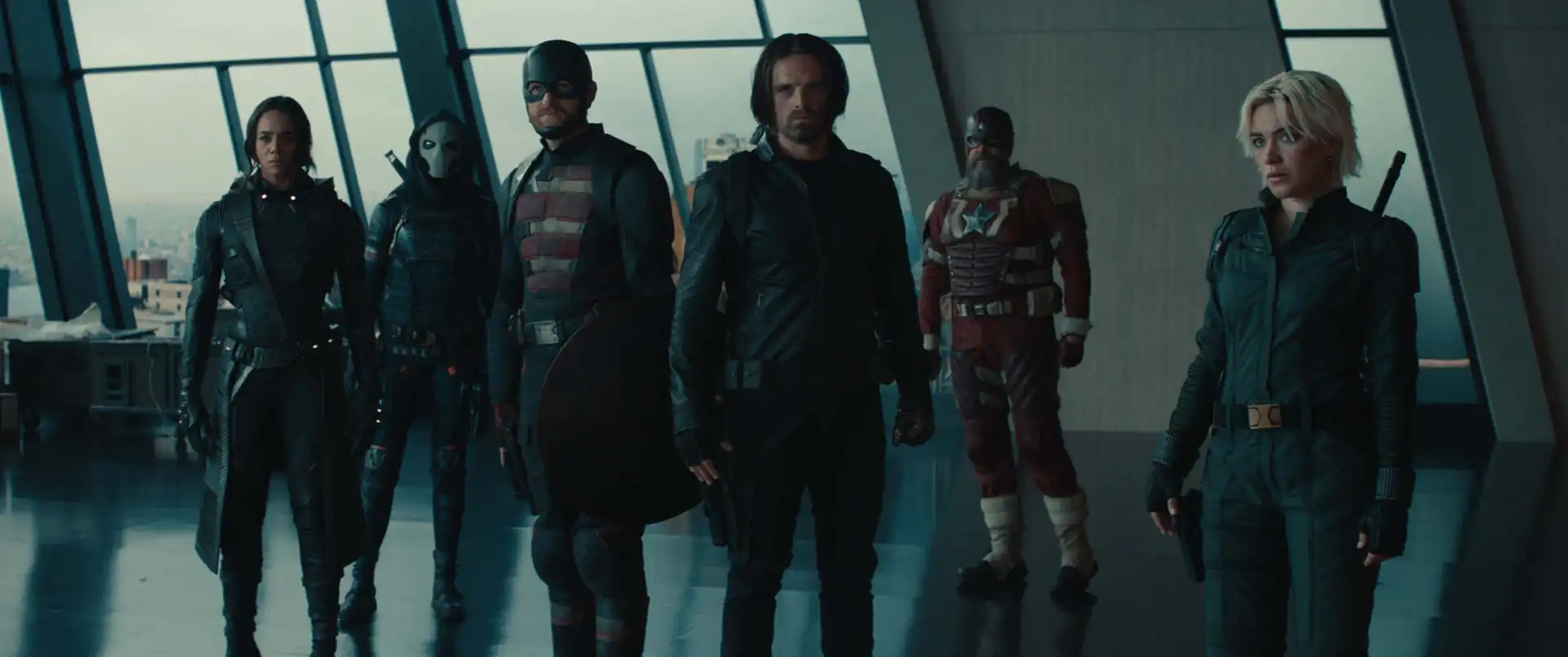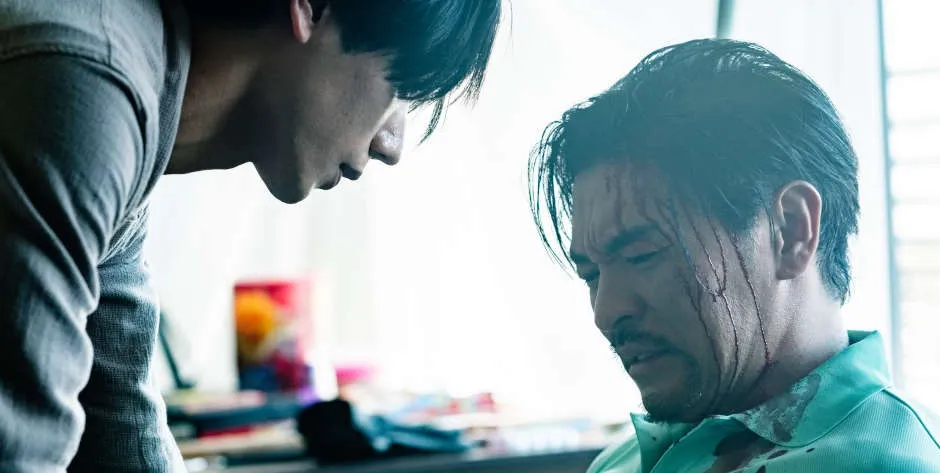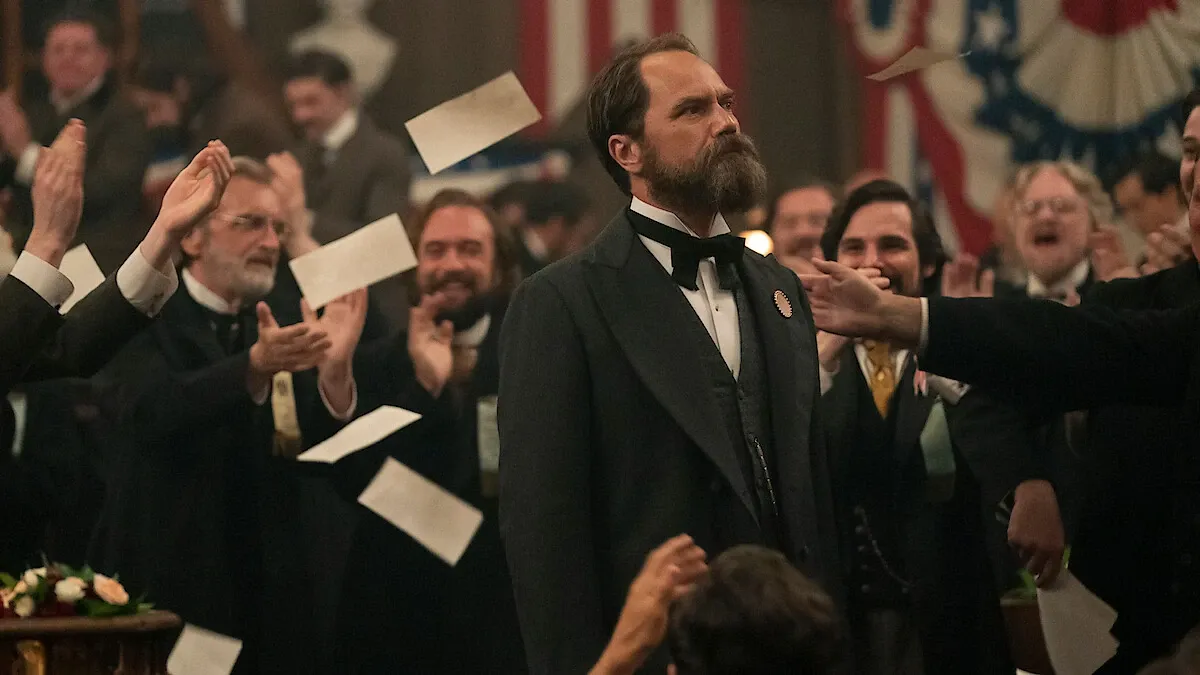Thunderbolts* is a decent enough movie by Marvel standards. Compare it to the A24 indie heaven like the marketing machine tells us to, and it falls apart. It's a new episode in the largest TV series of all time, yet it doesn't feel like part of any bigger picture.
It has the pacing and scale of a season finale instead of a feature film. Which, considering how messy and unfinished this "phase" of the Marvel canon this has been, shouldn't be that much of a surprise. For the past five years, Marvel has paced its streaming shows like movies, and its movies like serials. Long gone are the days where the movies were an event. Now, they feel like an obligatory pit stop on their way to streaming.
Thunderbolts* is also a victim of Marvel's ever-expanding cinematic universe, which means that to understand it, you'll have to do homework first. Half the characters are one-offs from films made over eight years ago. Some only appeared on streaming series that few watched.
The film doesn't waste time introducing anyone, either. A line or two of exposition to establish their name and rank will have to suffice. If you didn't have any connection with these characters from before, this is not the film that will change that.
Yelena (Florence Pugh) is depressed after the death of her sister during the Infinity War, and her relationship with her father, Alexei (David Harbour). is strained. (Apparently nobody cares about her mother, who isn't mentioned even once.) Meanwhile, the villainous Valentina De Fontaine (Julia Louis-Dreyfus) is under scrutiny by the government, including Senator Bucky Barnes (Sebastian Stan), who believe that she's behind a new super-soldier program of some sort.
So, Fontaine sends Yelena to clean up evidence, only to double cross her, John Walker (Wyatt Russell), Ghost (Hannah John-Kamen), and Taskmaster (Olga Kurylenko), leaving them for dead as she cleans up her tracks. On the way, they meet human guinea pig Bob (Lewis Pullman), who suffers from amnesia.
After two hours of spectacle, there's not a lot to write home about. As the films cuts to credits, it feels so abrupt I was certain I had nodded off at some point. I hadn't. Instead, the film had run into the Marvel Wall, meaning it can't go any further or explore any other topic without bumping into a competing property.
Thematically, there's a lot to like, if not love. Thunderbolts* deals with trauma, depression, healing, and forgiving yourself for past mistakes. The only problem is that it's all territory already covered far better in Everything Everywhere All at Once, which did it for a fraction of the budget.
In fact, look at the final act of Thunderbolts* and compare it to Everything Everywhere, and you'll see just how similar they are and how rigid Thunderbolts* feels next to the looser and more inventive indie.
Which isn't to say that movies can't talk about the same things. It's only natural that films like this, which are aimed for a specific youth audience, will hit similar talking points. But Thunderbolts* tries so hard – be that in marketing or just optics – to play itself off like a casual, cool little oddity that just happens to be Marvel. Yet it's simply a slickly made, polished product that can't do any of the same things as Everything Everywhere precisely because it's a Marvel property.
That doesn't make it a bad film. By all accounts it's entertaining and fun. The cast is charming and director Jake Schreier and his stunt director Heidi Moneymaker stage action far better than most Marvel filmmakers. But it highlights all the limitations that Marvel has cultivated for itself and gives us very little to expect beyond an advert for yet another film which promises to right the ship.
Thunderbolts* isn't the problem, but it isn't the solution, either. It just is, and the rest is up to the audience.













